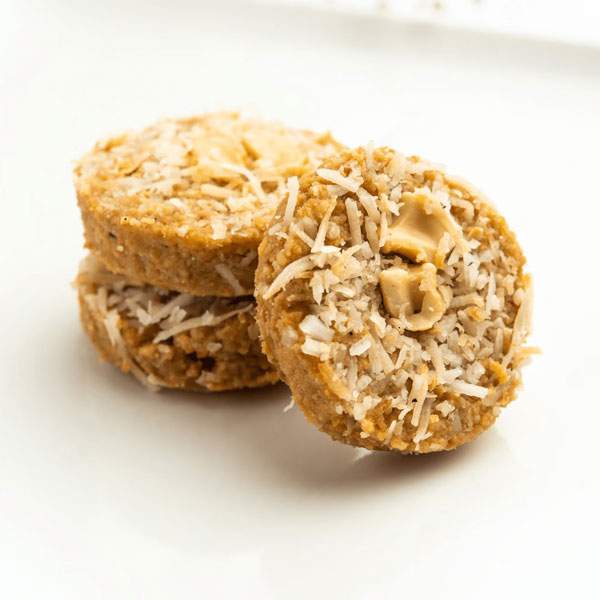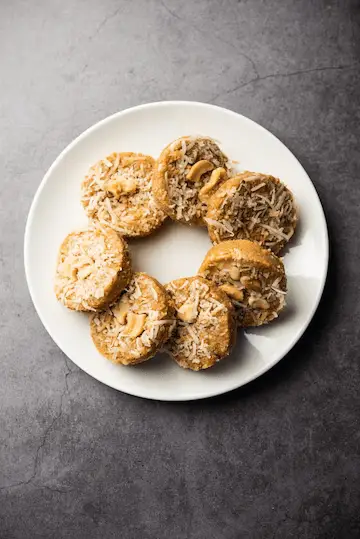
If you step into a Hindu Bengali household during the vibrant festivities of Durga Puja or Laxmi Puja, I can bet that the air will be filled with the aroma of delicious sweets like different types of Naru and Sondesh that are used for divine offerings.
In my home, my mother-in-law, Reeti Rani Gour holds the secret to creating an exquisite delight called Pera Sondesh. This type of basic Sondesh, cooked with ingredients found in most Bengali houses, is made during special celebrations in most Bengali families, particularly in Hindu households. Every family has their unique technique of making it using a recipe passed down through generations. With the passage of time, this treasured recipe has evolved into a beloved tradition, bringing families together over its delicious sweetness.
If you have a sweet tooth and want to make something simple yet mouthwateringly good at home, this is the recipe for you.
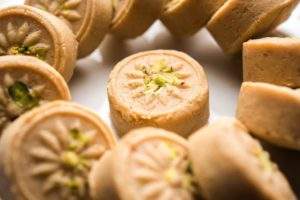
So let’s get started with the recipe:
Ingredients:
- 1 1/2 liters milk (full cream)
1 1/2 liters Milk, Reduced Fat, Fluid, 2% Milkfat With Added Vitamin A 773 Calories per serving
- 1/2 cup sugar
1/2 cup Sugars, Granulated 375 Calories per serving
- 10 small cardamom pods
2 g Cardamom 6 Calories per serving
- 3 teaspoons ghee (clarified butter)
3 tsp Butter Oil, Anhydrous 112 Calories per serving
6 g Almonds, Dry Roasted Without Salt Added 1 Calorie per serving
| Nutrition Facts | |
| Serving size: 1 piece | |
| Servings: 25 | |
| Amount per serving | |
| Calories | 52 |
| % Daily Value* | |
| Total Fat 1.9g | 2% |
| Saturated Fat 1.1g | 5% |
| Cholesterol 6mg | 2% |
| Sodium 29mg | 1% |
| Total Carbohydrate 7.1g | 3% |
| Dietary Fiber 0.1g | 0% |
| Total Sugars 6.8g | |
| Protein 2.1g | |
| Vitamin D 0mcg | 2% |
| Calcium 75mg | 6% |
| Iron 0mg | 0% |
| Potassium 38mg | 1% |
Instructions:
Step 1:
My mother-in-law heats up her trusty karai (a traditional cooking vessel, you can also use a large saucepan commonly used for boiling milk) on the gas stove and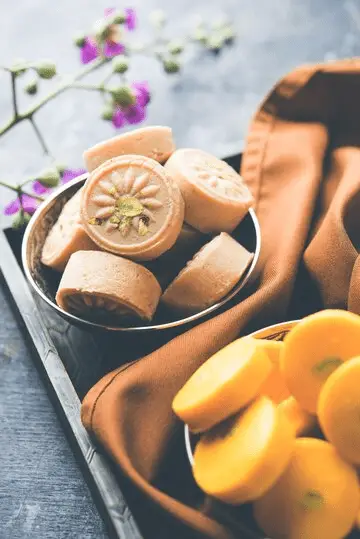 pours in all the milk. She adds the cardamom pods to the milk and gradually heats it. This is a straightforward yet critical step. The milk must be boiled down to half its original volume, and she stands near the stove, stirring the milk all the way through. Because a single moment of forgetfulness could result in burned milk, ruining the flavor of the sondesh. The caramel flavor will be replaced by a burnt unpleasant odor. While she stirs and stirs, the entire house is filled with the aroma of cardamom.
pours in all the milk. She adds the cardamom pods to the milk and gradually heats it. This is a straightforward yet critical step. The milk must be boiled down to half its original volume, and she stands near the stove, stirring the milk all the way through. Because a single moment of forgetfulness could result in burned milk, ruining the flavor of the sondesh. The caramel flavor will be replaced by a burnt unpleasant odor. While she stirs and stirs, the entire house is filled with the aroma of cardamom.
Step 2:
When the milk gradually thickens and becomes about half of its original amount, it’s time to add the sugar. Make sure that each grain of sugar properly dissolves into the mixture transforming the milk into a sweet and creamy delight. My mother-in-law watches over the whole process closely, making sure it reaches the perfect consistency, not too runny nor too thick.
Step 3:
It’s Ghee Time!!! Once the sugar has been thoroughly dissolved and the milk has thickened slightly, almost to one-fourth of its original volume, pour in the ghee, infusing the Pera Sondesh mixture with a luscious, buttery aroma. Although I recommend three teaspoons of ghee for 1.5 liters of milk, you can add a bit more if desired. As my mother-in-law believes, you can never put too much ghee on anything. Allow the mixture to continue boiling until the milk forms a cohesive mass. After that, turn off the gas cooker and leave the mixture to cool.
Step 4:
It’s now time to shape the sondesh. There are numerous ways to accomplish this. One can apply some ghee on their palms and take small portions of the mixture and shape it however they like. Another alternative is to use ready-made Sondesh molds with a variety of patterns. This way, the sondesh looks so beautiful.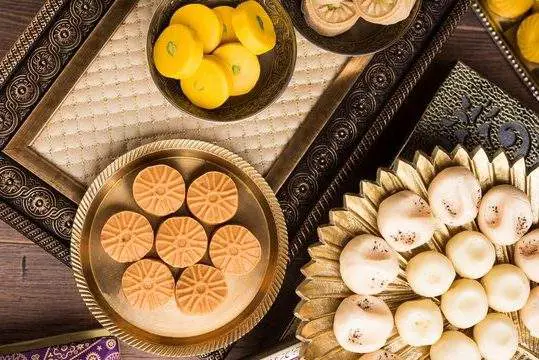 Simply brush some ghee into the mold and make the sondeshes. The third and most straightforward method is to brush ghee onto a tray or large plate. Then pour the entire mixture on top and flatten it with a rolling pin. Then cut it into a barfi (or square) shape. Allow it to cool before picking them up individually.
Simply brush some ghee into the mold and make the sondeshes. The third and most straightforward method is to brush ghee onto a tray or large plate. Then pour the entire mixture on top and flatten it with a rolling pin. Then cut it into a barfi (or square) shape. Allow it to cool before picking them up individually.
Step 5:
To add a final touch to the sondesh, my mother-in-law showers the Peras with crushed pistachios or almonds. This not only makes the sondesh appear extra mouthwatering, but the crunch of the nuts in contrast to the sugary, caramel-like treats makes the sondesh taste particularly exceptional. You can get creative with the garnish; it is not uncommon to use dried coconut flakes, raisins, other types of nuts, or a combination of the ingredients mentioned. Just be careful not to overdo it and lose the original flavor of the sondesh. Another approach to make the sondesh seem more appealing is to add food coloring to the milk mixture. Although I enjoy the original caramel-like color of the sondesh, some people may find food coloring more enticing.
In today’s fast-paced world, where spending time with family is becoming more and more rare, the practice of making sondesh at home serves as a reminder of the need to preserve cultural identity and cherish connections with our history. We do not make the Pera sondesh due to its scarcity. Because similar sondesh are sold in sweet shops everywhere in the country. But we, all the family members, really enjoy making it together. Especially when the Sondesh mixture is ready we like to all sit around the bowl of the mixture and give shape to the sweet delight. And make sweet memories together in the process.
For the same reason, most Hindu households keep the tradition of making sondesh alive. And believe me, no other Pera Sondesh tastes as good as the one we create at home together. So let us savor these moments and enjoy the power of food to bring people together and develop a sense of connection and shared heritage.

